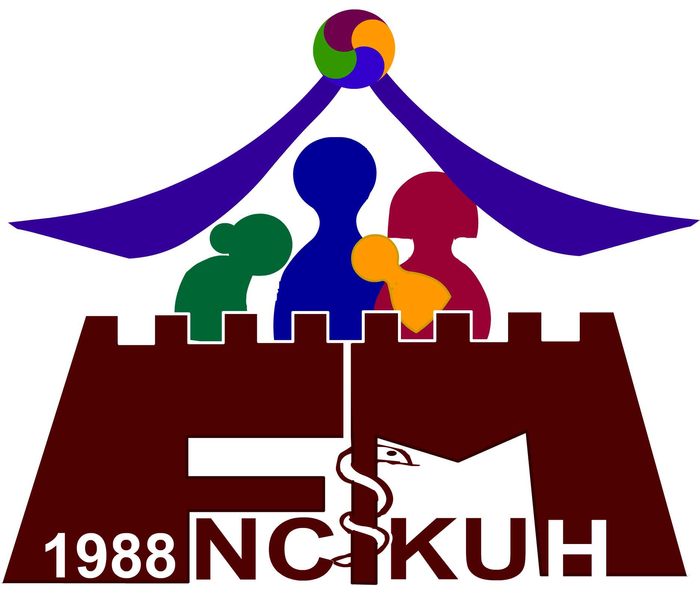Brief Introduction
Past and Present Directors:
Chih-Jen Chang (1988.6~2001.7)
Feng-Hwa Lu (2001.8~2004.7)
Jin-Shang Wu (2004.8~2007.7)
Yi-Ching Yang(2007.8~2013.7)
Jin-Shang Wu (2013.8~2019.7)
Chih-Hsing Wu (2019.8—present)
FACULTY
According to the personnel quota system of the College of Medicine at NCKU, the Department is currently staffed with 15 attending physicians, including two full professors, two associate professors, four assistant professors.
HISTORY
In 1982, the Executive Yuan passed a resolution in its technology advisory meeting for all colleges of medicine to establish a department of family medicine. Accordingly, the Department of Family Medicine was first founded as an academic unit concurrently with the establishment of the college of medicine at NCKU in 1984. The Department began to double as a medical unit in 1988 when the NCKU-affiliated hospital was inaugurated.
The Department aims to cultivate family physicians and provide holistic medical services. In its academic capacity, the Department provides training programs for residents, internship courses for medical students from related departments, as well as continuing education for primary-level physicians while participating in related services and teaching activities within the Tainan medical network. In its medical capacity, the Department provides outpatient clinics and health examination services, and supports district public health group practice centers in remote areas. In terms of research, the Department focuses on common diseases and community epidemiology in Taiwan. Since its establishment, the Department has always endeavored to progress towards excellence in teaching, service and research.
RESIDENCY PROGRAM
The program of family medicine residency is conducted for a minimum duration of three years, in accordance with the regulations of Taiwan Association of Family Medicine. In the first year, residents are required to undergo two months of training for each specialty in internal medicine, emergency medicine, pediatrics and family medicine, and one month of training for each specialty in obstetrics and gynecology, psychiatry, radiological diagnostics, and community medicine. In the second year, they will receive two months of training in internal medicine, and one month of training for each specialty in surgery, pediatrics, obstetrics and gynecology, dermatology, otolaryngology, rehabilitation, psychiatry, community medicine, ophthalmology and neurology. In the third year, they will go through two to three months of training in administration of the Family Medicine Department, one month of training for each specialty in hospice palliative care and geriatrics, and three to four months of training for elective departments. In addition, they are required to receive research training all year around and home care training for one to two half-days a week. Upon completion of the designated training courses, residents are allowed to choose a specialty accreditation according to their preference in the fourth year. Meanwhile, residents at all levels are required to receive on-site outpatient consultation training once a week in the first year, twice a week in the second year, three times a week in the third year, and four times a week in the fourth year.
Following the residency program of the Department, our residents are qualified to work independently as an attending doctor with adequate research and mentoring skills. Also they are qualified to pass the competency tests for a family medicine specialist license, 100% up to the present. Furthermore, they are well-prepared for a wide variety of job opportunities. They can plan to work in a hospital, study for a master’s or doctoral degree, serve as the director of a district public health center, or open their own medical clinic. So far, we have seen all of them perform well in a medical career of their choice.
ACADEMIC RESEARCH
Long-term follow-up investigation on chronic diseases of residents in Tainan City.
Long-term follow-up investigation on chronic diseases of the elderly in Tainan City.
An epidemiological study of drug use among the elderly in Tainan City.
Research on the Relationship between Obesity and Weight Loss.
Research on Diabetes Patient Education.
Research on Home Health Care and Alternative Therapy.
DEPARTMENT LOGO
Text:
1988 NCKUHFM represents the establishment of the Department in the NCKU Hospital in 1988.
FM-shaped castle:
The FM-shaped castle represents Tainan City as a community, and FM as a solid foundation for the health of the whole family.
Four human figures:
The four human figures represent care recipients, regardless of age and gender, as well as a family composition.
人-shaped roof:
The Chinese character人means human. The人-shaped roof represents the Department as a human-oriented entity and family physicians as the guardians of the family.
Snake staff in the middle:
It symbolizes medical professionalism and the neutrality of medical ethics that work to expel diseases and pursue health.
Four-color rotating circle on the top:
The rotating circle symbolizes the operation of the four sub-disciplines of family medicine, behavioral science, preventive health care and community medicine in the Department, with the four approaches of biology, psychology, society and environment.


